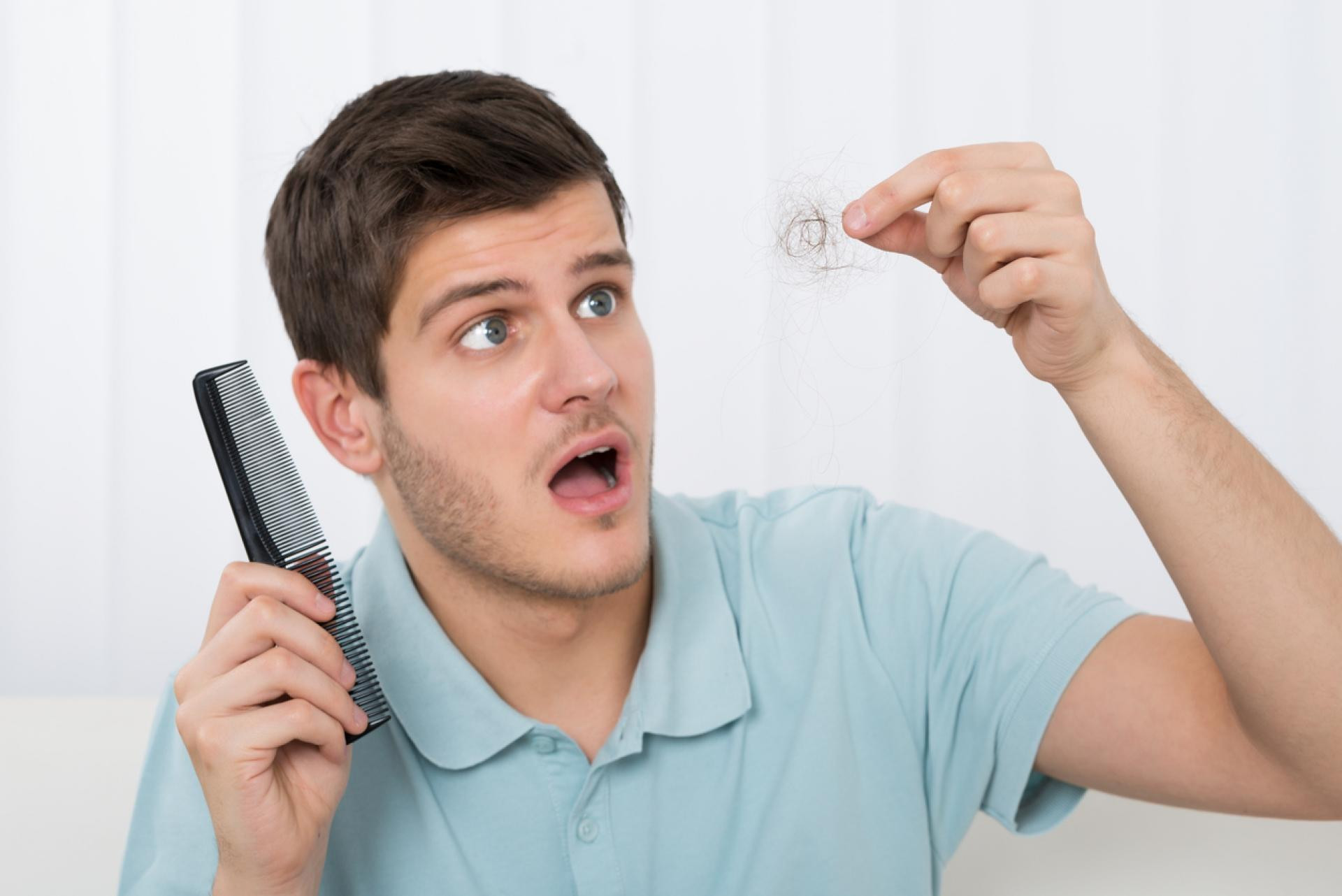What is causing my hair to fall out?
Do you ever wonder, "Is my hair coming out?" after a shower or while looking at your hairbrush? You are not alone if you are concerned about too much hair in the drain or clinging to your brush. Many guys go through this stage of wondering about the early stages of hair loss.
We'll look at some of the most prevalent causes of male hair loss below.
Male Pattern Baldness
Male pattern baldness, often called by your doctor as androgenic alopecia, is the most prevalent cause of hair loss in males. It happens as a result of changes in your body. It refers to the androgenic steroid DHT, which is created as a byproduct of testosterone. DHT has an impact on the quality and integrity of hair follicles.
Although you may not notice the symptoms until later, this illness begins in your twenties or thirties. By the age of 50, almost half of all males have hair loss.
A receding hairline is one of the earliest indicators of hair loss. You can also lose hair due to vertex baldness, which appears as a bald region around the crown of your head.
Hair Loss As A Result of Stress
Excessive stress in your life can also cause hair loss. Stress-related hair loss is known as telogen effluvium, and it is not as frequent as male pattern baldness. If you have a traumatic incident in your life or are under extreme physical or psychological stress for an extended period of time, you may see indicators of hair loss. It might begin as a result of a single event or as a result of emotional issues, surgery, or sickness.
Instead of emerging in the tell-tale patterns of male pattern baldness, this form of hair loss affects your entire head at once. When your hair falls out as a result of telogen effluvium, your entire head of hair seems thinner and less healthy than before.
Deficiencies in Nutrition
Telogen effluvium is not restricted to stressful situations. This hair loss can also be caused by a lack of nourishment or other nutritional disorders. Crash diets and eating disorders are the most prevalent causes of diet-related telogen effluvium. It might arise as a result of rapid weight loss or because you have stopped eating as much as you should due to stress.
Hair loss might be an indication that you are not receiving enough nutrients in your diet. Iron, zinc, vitamin D, and biotin are particular vitamins and minerals associated with hair development. If you don't get enough of them in your diet, you'll notice your hair falling out quickly.
Medications
Hair loss is an adverse effect of certain drugs. These prescription and over-the-counter medications alter the hair development cycle, resulting in more hair loss than growth.
Cancer treatments are the most prevalent cause of hair loss. However, this can also happen with medications used to treat heart disease and high blood pressure. Blood thinners, beta blockers, anticonvulsants, amphetamines, antithyroid medicines, and oral retinoids are further examples of such treatments.
Medical Conditions
Hair loss can also be caused by medical issues such as drugs and stress. Diabetes, thyroid illness, anemia, and lupus are some of the most frequent health issues related with hair loss. Autoimmune illnesses can induce alopecia areata, a condition in which the body's immune system assaults hair follicles. Instead of the recognizable look of male pattern baldness, this kind of loss is often spherical and uneven.
Grooming Supplies
Did you realize that the grooming and styling items you use might cause hair to fall out? The majority of these items are completely safe. Some shampoos, hair color products, chemicals, and styling products, on the other hand, can really harm your scalp and hair. This hair loss is usually just transient. When you quit using the harmful items, natural hair growth usually returns.
Learn More About the Causes of Hair Loss and Treatments for Hair Loss
If you're worried about your hair falling out, your best bet is to consult with a hair restoration specialist. A medical practitioner who specializes in hair loss and restoration therapies can assess your issue and provide treatments to restore the young and healthy appearance of a thicker head of hair.
Dr. Andrejs Milčevskis, a hair restoration expert in Riga, Latvia, offers a variety of treatment options, including:
Extraction of follicular units (FUE)
Schedule an in-person or WhatsApp appointment with Rubenhair Latvia to understand the source of your hair loss and to explore various treatment options. Call us at +371 267 777 76 now.







